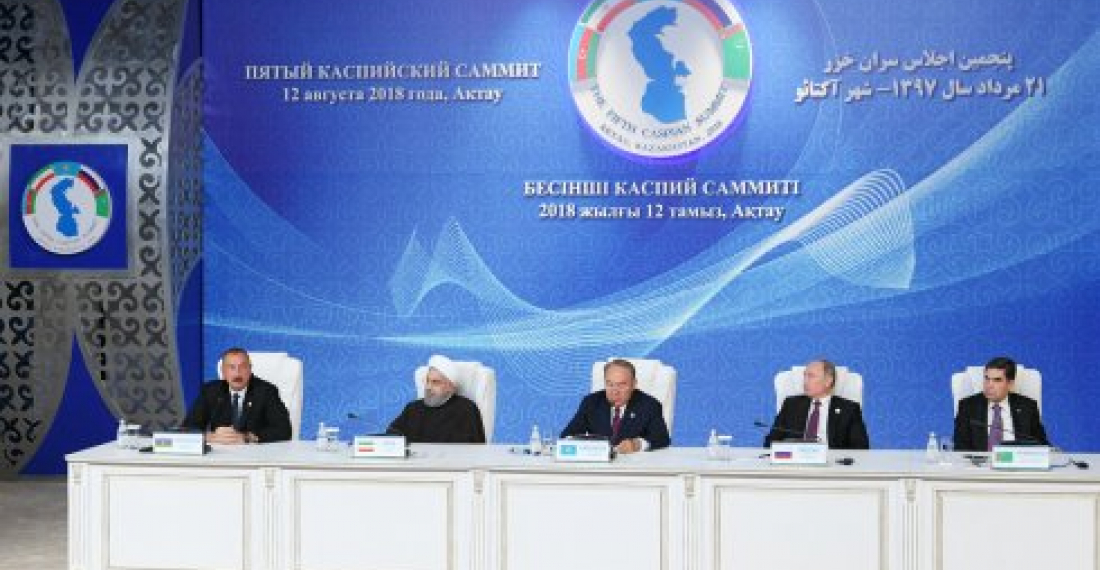The presidents of Azerbaijan, Iran, Kazakhstan, Russia and Turkmenistan have signed a convention on the status of the Caspian Sea after more than two decades of negotiations.
At the fifth Caspian summit, Vladimir Putin, Nursultan Nazarbayev, Hasan Rouhani, Ilkham Aliyev and Gurbanguly Berdymukhamedov inked the document determining the legal status of the Caspian Sea. Work on the document has been ongoing since 1996. Several other documents on regional cooperation were signed at the summit, including a protocol on cooperation in the fight against terrorism, a protocol on cooperation in the fight against organised crime, as well as an agreement on avoiding incidents in the Caspian Sea.
In the economic sector, the countries bordering the Caspian Sea signed an agreement on trade and economic cooperation as well as an agreement on cooperation in the transport sector. The leaders of the five countries also signed a protocol on cooperation and interaction of the border control agencies.
Russia's president Putin said that he sees the Convention on Caspian Sea's Legal Status as a good example of successful teamwork despite the current difficult global conditions.
"Success that has been achieved, and this is certainly success, has become possible to a great extent due to a high level of trust and mutual understanding between the leaders of the Caspian states, their readiness to always act within the logic of respect, partnership and equality," the Russian president said.
related content: "The Caspian is neither a sea nor a lake"
source: commonspace.eu with agencies
photo: The presidents of Azerbaijan, Iran, Kazakhstan, Russia and Turkmenistan have signed a convention on the status of the Caspian Sea in Atau on 12 August 2018






